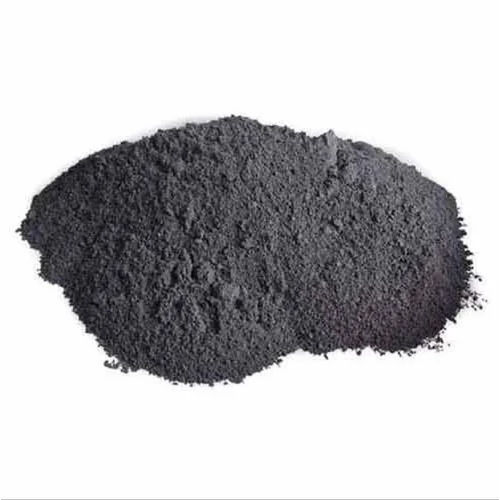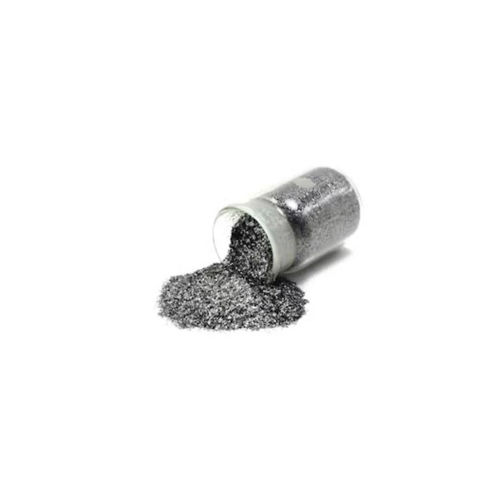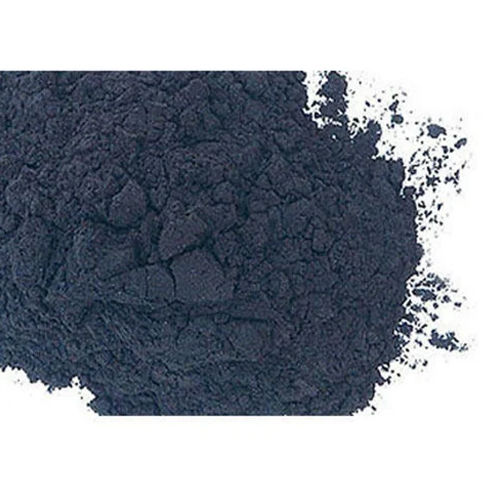पà¥à¤°à¤¾à¤à¥à¤¤à¤¿à¤ à¤à¥à¤°à¥à¤«à¤¾à¤à¤ पाà¤à¤¡à¤°
Price 55 आईएनआर/ Kilograms
पà¥à¤°à¤¾à¤à¥à¤¤à¤¿à¤ à¤à¥à¤°à¥à¤«à¤¾à¤à¤ पाà¤à¤¡à¤° Specification
- उपयोग
- औद्योगिक
- मटेरियल
- सीसा
- एप्लीकेशन
- Industrial
- रासायनिक संरचना
- Natural Graphite (C: 85% min), Minor impurities
- प्रॉडक्ट टाइप
- ग्रेफाइट पाउडर
- शेप
- पाउडर
- रंग
- काला
- कठोरता
- 1-2 Mohs
- घनत्व
- ग्राम प्रति घन सेंटीमीटर (g/cm3)
- Odor
- Odorless
- Ash Content
- 15% max
- Purity
- 85% Min
- Particle Size
- Up to 300 mesh (varies by grade)
- Moisture Content
- Less than 1%
- Fixed Carbon
- 85% min
- Melting Point
- Sublimes at 3652–3697 °C
- Solubility
- Insoluble in water
पà¥à¤°à¤¾à¤à¥à¤¤à¤¿à¤ à¤à¥à¤°à¥à¤«à¤¾à¤à¤ पाà¤à¤¡à¤° Trade Information
- Minimum Order Quantity
- 100 Kilograms
- भुगतान की शर्तें
- कैश इन एडवांस (CID)
- आपूर्ति की क्षमता
- 1000 प्रति महीने
- डिलीवरी का समय
- 5-7 दिन
- मुख्य घरेलू बाज़ार
- ऑल इंडिया
About पà¥à¤°à¤¾à¤à¥à¤¤à¤¿à¤ à¤à¥à¤°à¥à¤«à¤¾à¤à¤ पाà¤à¤¡à¤°
Types of Natural Graphite
Natural graphite is generally classified into three types, each with slightly different properties and applications:
-
Flake Graphite: This type consists of discrete, flat, plate-like particles with a high degree of crystallinity. Flake graphite is highly valued for its excellent electrical and thermal conductivity, as well as its lubricity. It is a key component in a variety of high-performance products.
-
Amorphous Graphite: The term "amorphous" is a bit of a misnomer, as this graphite still has a crystalline structure, but it is much finer-grained and has a lower degree of crystallinity compared to flake graphite. It is less expensive and is used in applications where a high carbon content and specific particle shape are not as critical.
-
Vein Graphite (or Lump Graphite): This is the rarest and purest form of natural graphite, found in fissures or veins. It has a high carbon content and is known for its excellent thermal and electrical conductivity, as well as its high thermal resistance.
Key Properties of Natural Graphite Powder
Regardless of its type, natural graphite powder possesses a unique combination of properties that make it highly valuable across numerous industries:
-
Electrical and Thermal Conductivity: Graphite is an excellent conductor of both electricity and heat. This is due to its layered structure, where electrons can move freely within the hexagonal planes.
-
Lubricity: The layers in graphites structure are held together by weak van der Waals forces, allowing them to slide easily past one another. This gives graphite a very low coefficient of friction, making it an ideal solid lubricant.
-
High Temperature Resistance: Graphite is highly refractory, with a high melting point and stability at extreme temperatures. It can withstand temperatures up to 3650C, making it suitable for high-temperature industrial applications.
-
Chemical Inertness: Graphite is chemically stable and resistant to most acids and bases, which is important for applications in corrosive environments.
-
Lightweight: Graphite has a low density, which makes it a useful additive for lightweight materials.
Common Applications
High Purity and Consistent Quality
Our Natural Graphite Powder offers a minimum carbon content of 85%, ensuring dependable performance across many industrial procedures. Every batch is strictly tested for purity, particle size, and moisture, delivering customers a reliable raw material for consistent results in their applications.
Diverse Industrial Applications
This graphite powder is ideal for use in lubricants, batteries, foundry facings, and refractory materials. Its fine particle size (up to 300 mesh) and low ash content make it a versatile choice for a variety of industries, including metallurgy, chemicals, and electronics, enhancing efficiency and product quality.
Committed to Quality and Service
As trusted exporters, manufacturers, and suppliers from India, we prioritize customer satisfaction through quality assurance and responsive support. Our processes focus on providing prompt delivery and tailored solutions, making us a preferred choice in the industrial graphite market.
FAQs of Natural Graphite Powder:
Q: How is Natural Graphite Powder with up to 300 mesh particle size typically used in industry?
A: This graphite powder is commonly utilized as a lubricant, foundry facing, conductive material, and refractory additive in industrial settings due to its high carbon content, fine particle size, and stability at elevated temperatures.Q: What benefits does the 85% minimum fixed carbon content provide in graphite powder?
A: An 85% minimum fixed carbon content ensures higher conductivity, improved lubricity, and reduced impurities, enhancing the powders effectiveness in manufacturing, electronics, and metallurgical applications.Q: Where can this natural graphite powder be supplied from and to?
A: The product is sourced, manufactured, and exported mainly from India, serving both domestic and international markets through a network of exporters, importers, suppliers, and traders.Q: When is it appropriate to use this grade of graphite powder in production processes?
A: This grade is suitable for processes requiring stable carbon content, controlled ash, and minimal moisture, such as in alkaline battery production, casting, and chemical synthesis, especially when fine particle size is essential.Q: What is the process for ensuring the powder meets required purity and particle size specifications?
A: Stringent quality protocols are followed during extraction, purification, and milling. The product is then tested for carbon content, ash level, moisture, and particle distribution before shipment to meet industry standards.Q: How does the powders insolubility in water and sublimation point affect its industrial performance?
A: Its insolubility maintains stability in aqueous environments, preventing unwanted reactions, while sublimation at high temperatures allows the powder to function effectively in extreme heat applications such as metallurgy.Q: What are the primary advantages of sourcing from a full-service Indian exporter and supplier?
A: Working with a respected Indian exporter ensures consistent product quality, competitive pricing, flexible bulk supply, and dedicated after-sales support, making the procurement process smooth and reliable for industrial buyers.

Price: Â
- 50
- 100
- 200
- 250
- 500
- 1000+
अधिक Products in ग्रेफाइट पाउडर Category
SCH ग्रेफाइट फ्लेक
रासायनिक संरचना : Pure natural graphite
प्रॉडक्ट टाइप : ग्रेफाइट परत
मूल्य या मूल्य सीमा : आईएनआर
घनत्व : ग्राम प्रति घन सेंटीमीटर (g/cm3)
मूल्य की इकाई : किलोग्राम/किलोग्राम
मटेरियल : सीसा
SCH ग्रेफाइट पाउडर
रासायनिक संरचना : Carbon content 96% 99%
प्रॉडक्ट टाइप : ग्रेफाइट पाउडर
मूल्य या मूल्य सीमा : आईएनआर
घनत्व : ग्राम प्रति घन सेंटीमीटर (g/cm3)
मूल्य की इकाई : किलोग्राम/किलोग्राम
मटेरियल : सीसा

 जांच भेजें
जांच भेजें जांच भेजें
जांच भेजें


